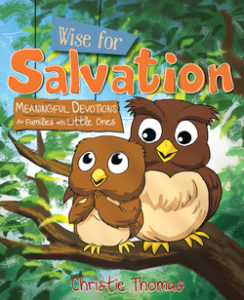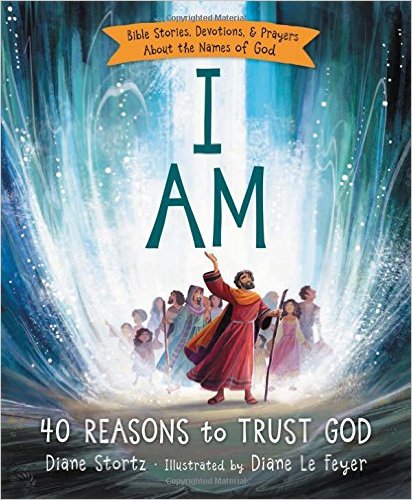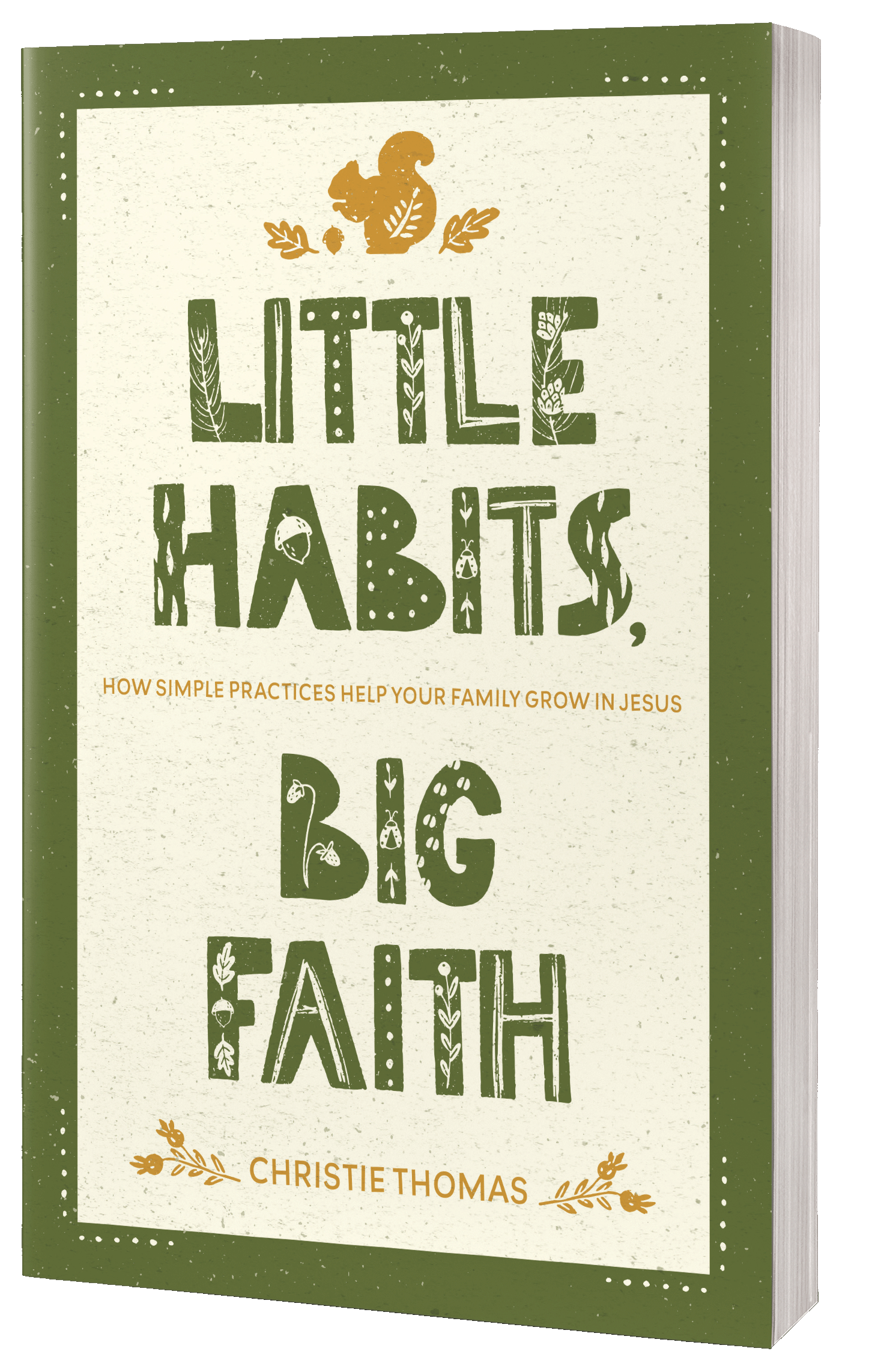Finish the following sentence for me…
Christianity is not about religion, it’s about __________________.Did you say “relationship”?If so, you WIN!DING DING DING! You may pass GO and collect $200 (your cheque is in the mail…promise….)
“Christianity is not about religion, it’s about relationship” is probably something you’ve heard over and over in your Christian life. And it’s true!
One of my favourite Old Dead Preacher Guys is Andrew Murray, and in a devotional called “Daily in His Presence”, he writes this fabulousness:
In Romans 7 we have an image of an ordinary Christian doing his best to fulfill the requirements of the law and to live by them, yet never succeeding because of shortcomings and failures.
In Romans 8 someone is described who knows that he lives in Christ Jesus and is dead to sin and alive for God. By the Spirit of God, he is free of the hold which sin and death have on him.
Friends, we can only follow God by the grace which he gives through his Spirit.It’s the only thing that makes me want to follow him, and it’s the only thing that makes me capable of following him.
I know this. And I bet you know this.
So why do we teach our children otherwise?
When we read our children devotionals that tell them to stop lying / grumbling / cheating / sinning, or to be more respectful / loving / obedient / generous / good and then quote a verse at them to prove our point, we are preaching LAW.
Do you see it? Does it make you a little agitated?
You can’t see me right now, but my hands are shaking. Why? Because I am SO convinced that as Christian parents we have lost sight of the relationship we want our children to have in favour of the ease of the religion that makes our children behave.
I’ve done it myself; the devotional that I used to recommend to our preschool parents was full of law. I was recently reading an elementary-age one to my kids at breakfast time, and it kinda felt like I was reading something dirty to them!
I’m sure you’re familiar with the kind:
“Share with your brother! Jesus wants you to. There’s even this nifty story in the Bible about a little boy sharing his lunch! Be like him.”
“Here’s a fictional story about a kid complaining. Stop complaining! Jesus wants you to. He never complained so you shouldn’t either.”
“This girl is being mean to her friend. Jesus doesn’t like that. Make good choices. Here’s a verse about being kind.”
It’s gotten to the point that I have put devotional books in the recycling because I didn’t even want them to go to the secondhand store. I don’t share this to be judgy, but as a reminder to us that we need to be SO careful how we share God’s Word with our children.
What message do we want our kids to get?
That Jesus wants us to be good?
Or that Jesus DIED so that he could be our best friend forever, and that through the Holy Spirit working in us, we begin to exhibit fruits of the Spirit like love, joy, peace, patience, kindness, goodness, faithfulness, gentleness, and self-control?
The funny thing about fruit is that you can’t force it to grow. You plant your roots down deep into God’s Word, and HE makes the fruit grow. And in the case of your child, you encourage him to plant his roots down deep into God’s Word, and God makes the fruit grow in his life. We can make them aware of what the fruit looks like, but we can’t force them to grow it.
Friends, our children can only follow God by the grace which he gives through his Spirit.
It’s the only thing that makes our children want to follow him, and it’s the only thing that makes our children capable of following him.
Not a devotional.
God.
So now you may be feeling convicted, or convinced, or both, and you wonder how to go from here. First off, here’s how to discern if a devotional is moralistic.
Here are two ways to tell if a devotional is legalistic/moralistic:
1. Scripture is an afterthought. Got a long chunk of text with an itty-bitty little verse at the end that proves that the moral of the story is God’s honest truth? In the pastoral world, that’s called proof-texting. If it’s not ok in a sermon, it sure isn’t ok for my kids.
2. It tells your child how to behave in a certain situation. This is a dead giveaway. The Bible doesn’t really work like that. Do you follow Jacob’s marital patterns or cover your head when worshipping? I thought not. (And if you do, I bet there’s other parts of Scripture you don’t follow literally) This type of devotion follows the line of thought that the Bible is a manual or a rulebook for life. Yes, the Bible does give us wisdom for life, but it is definitely not a “let’s-copy-that-holy-guy-over-there” book. In fact, often it functions more as a “what-not-to-do” book. 🙂
So now that you know how to assess the books on your shelf, you may find yourself recycling one or two…or twelve. With what can you replace them? Here are four “Scripture-first” options for children.
Ages 3-6
I wrote this devotional book for a reason: I had such a struggle finding materials for young children that weren’t moralistic…so I wrote my own! But let me tell you why you should use this devotional with your kids.
1. It will take your littlest ones deep into God’s Word in a way that is completely accessible for them. It’s fun, it’s simple, it opens up conversations and gets them to store God’s Word in their hearts and minds.
2. It will not tell your kids what to do in situations, but will allow them to come to their own conclusions based on God’s Word, God’s Spirit, and the gentle leading of a parent.
Here’s some recent feedback from a parent:
” Well I’ve now learned that pretty much all our devotionals for kids were pretty moralistic based. Maybe that’s why it was like a chore for them. I am truly loving your book. The kids are seriously learning and retelling the stories, having fun, and applying lessons to their lives! Well H is applying. G is retelling lots and adding horses to the stories 🙂 But I have never seen H love devotions and “get it” so well before. I’m so impressed. And thankful! I’m sad that I didn’t spend more time looking for better material when [my older kids] were little. I just used what we had and thought it was ok, but the kids didn’t enjoy. But they loved their bibles and just sitting and chatting about Jesus. I think that’s what your book facilitates.”
Check out this book at Amazon.com.
Ages 6+
This book sometimes makes me tear up when I read it to the boys. It’s written by the same woman who wrote “The Jesus Storybook Bible”, and the short theological thoughts coupled with amazing illustrations have helped my children remember the deepest of concepts. It is best read to children that have the ability to think somewhat abstractly (ages 6+), but the depth of our inability to be “good” and of God’s rescuing love is just as apparent on the pages of this book as it is in her Storybook Bible. I can’t recommend it enough.
Check out this book at Amazon.com.
If you work in Children’s Ministry in any form, please read this post by another blogger about how this kind of moralistic thinking affects our kids from a Children’s Ministry perspective (rather than a parenting perspective). It is pure gold, and gives a good view of how this kind of moralistic thinking will affect our kids in the long-term.
If you are currently using a devotional book for your kids that you can confidently say is relationship-based, not law-based, please post it in the comments section for others to check out!
* This post contains affiliate links. That means I get paid a (very) small fee from Amazon for posting links to their products on my blog. It doesn’t mean that I get paid by the author to endorse a book; all recommendations are my own choices.








I am so happy to read your article. Our church recently had a table of devotional books for parents to purchase and I was so disappointed that each one I picked up was all about right living! Your article confirms what I was feeling. Actually what really helped me put my finger on it was when Phil Vischer said he realized that his creation VeggieTales was more about right living than truly getting to know God – and that’s when he made the new series about the Bible. Thanks for this recommendation – I won’t wait to try and win… I’m just going to go order it 😉
My sister also recently purchased this book to help her reach her boys how to have personal time with Jesus. It’s called “Time with Jesus” by Shelly McCandliss – you might like that one as well.
Thank you so much for the recommendation! I’m going to take a look. I am so thankful that I am not alone in noticing this trend among devotional books! Isn’t it great to know others has noticed the same issues? 🙂
Hey Denise, thanks again for recommending “Time With Jesus”! I just looked it up, and it looks fantastic.
Yes! I have felt the tension of this in my parenting. We want our kids to behave well, and we want them to follow God — it’s a challenge to communicate that their righteousness is an outcome and evidence of what has happened in their hearts rather than a requirement for relationship with God.
Come to think of it — I need to keep reminding myself of this truth!
That’s a great way to put it – an outcome and evidence. Amen!
Iwas forst reading the 4 simple ways to teach your child about God, then at the end was tjis article and it intrigued me because My husband had told me before that the devotional we had wasnt right….So as soon as I started reading I was immediately convicted , it described my sons devotional to the T….and its a VeggieTales one >. <
But I am thankful that I have found this article as though my son is 8, i have a saughter who is 2 and I am just starting to read and pray with her. I also have a bible for her from American Bible Society called "Read and Learn BIBLE stories from the old and new testaments. It was my sons but I wanted to see if anyone else has heard of it and if it woukd be a good one to start my daughterr of with.I noticed I'm rambling so I'll just say
Thank you so much again for making this blog and bringing these out for us to see.
God Bless
Oh Tiffany, I’m so glad you stopped by! Yes, just because something has a big name on it (like VeggieTales), doesn’t necessarily mean it’s teaching the gospel. Unfortunately. I’ve had to look very hard to find devotionals that are not legalistic/moralistic. Sigh. But it’s never too late! You have lots of years left with your son, and even more with your daughter. As far as Bible storybooks go, I think as long as it chooses stories that make God the hero (not people), and don’t pick the sensational stories just because they’re fancy (like Samson), you’re generally ok. Blessings!!